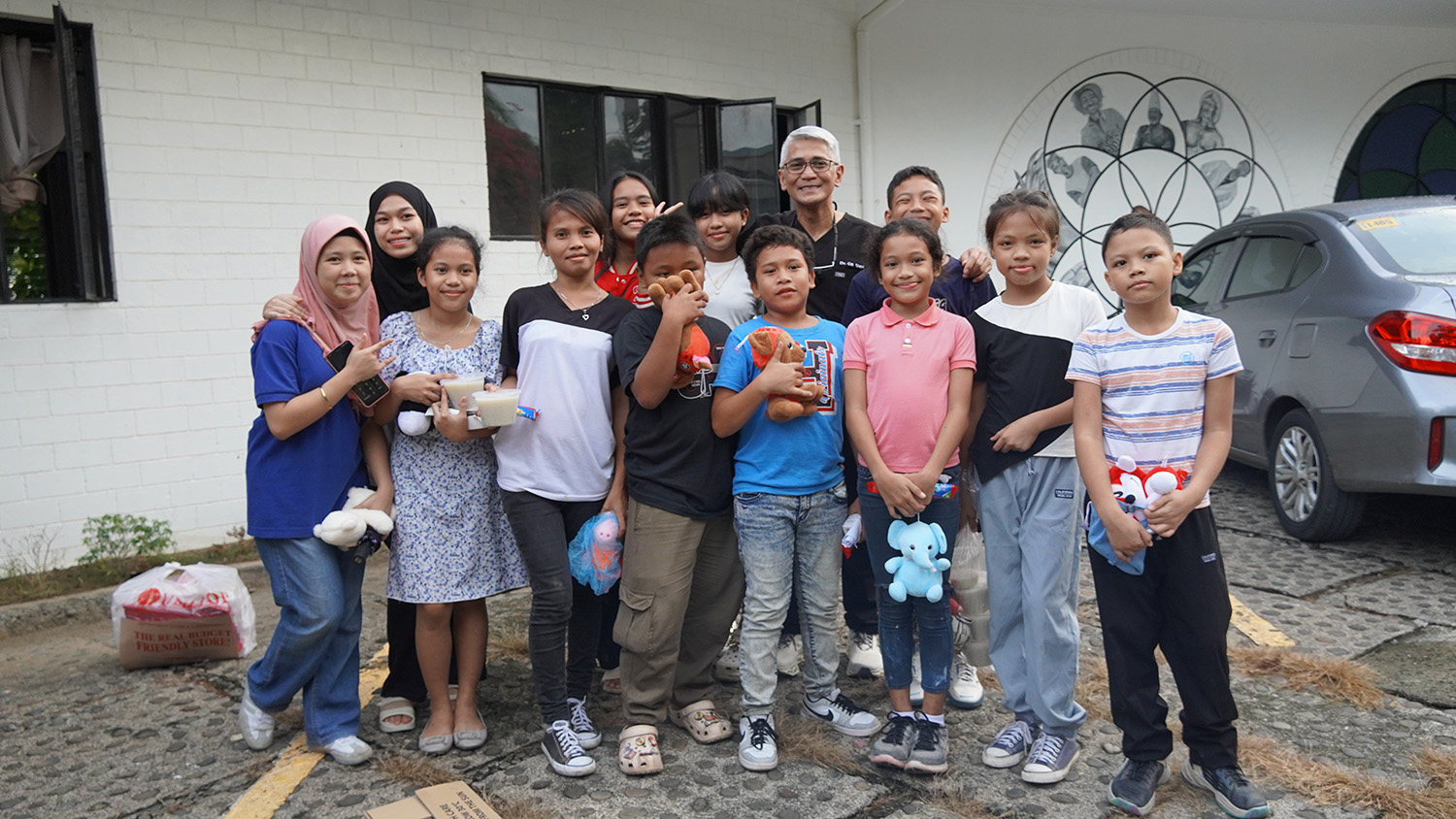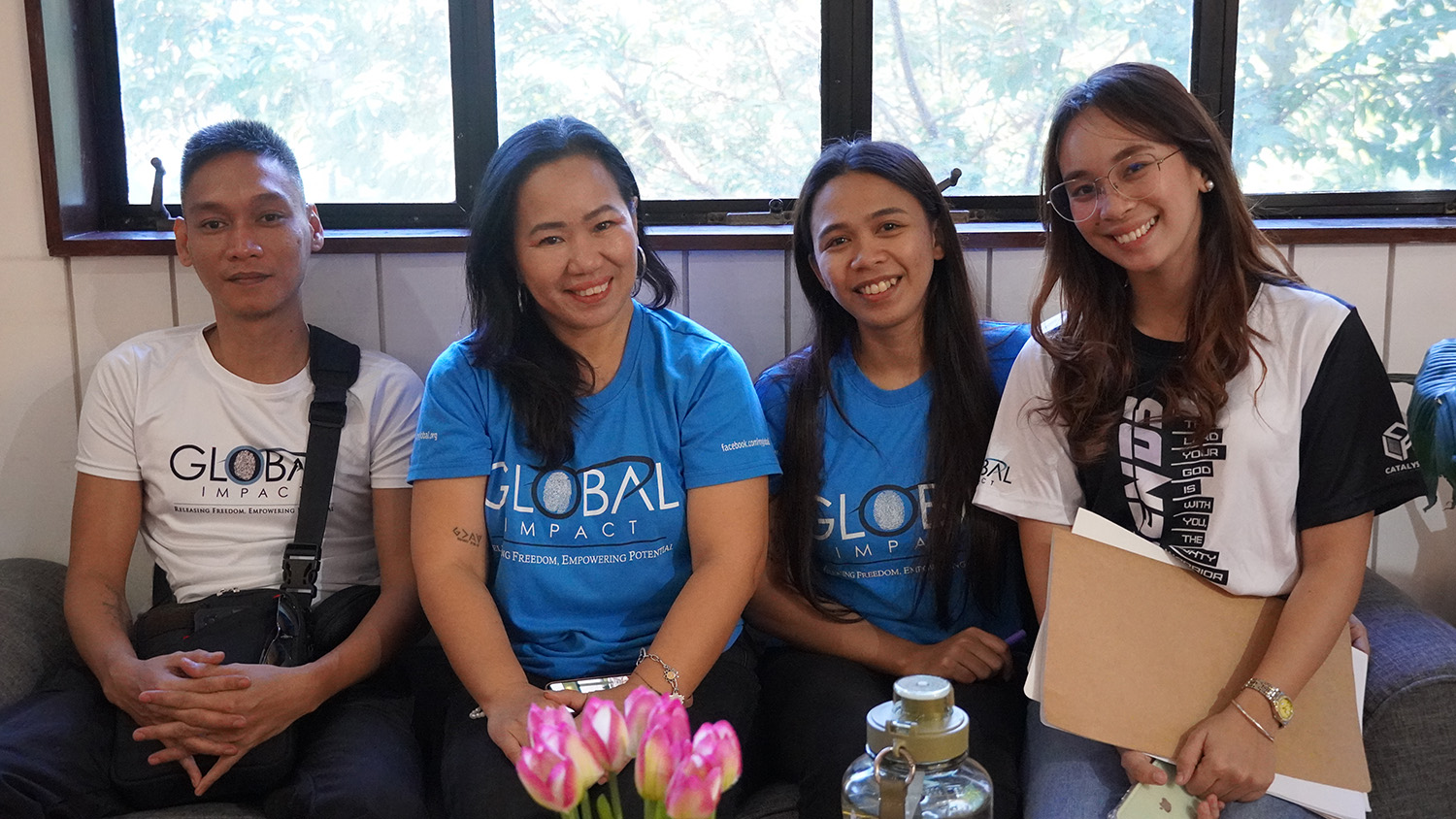Davao Smiles Showcases Students' Storytelling Talents

The student production team, filming Dr. Urbi outside the clinic.
The Department of Communication and the College of Humanities are proud to announce the upcoming release of Davao Smiles, a student-made documentary chronicling a humanitarian dental project in the Philippines spearheaded by Emeritus Professor Paul S. Rose. The film, which has been entered into a national film festival in South Korea, will premiere later this year, in both Korean and English. A trailer for the documentary is available on the Department of Communication website.
The humanitarian project was initiated by Professor Paul Rose, whose interest in aiding the Philippines led to connections in Davao and Korea, ultimately making the project—and its documentary—possible through his and the University of Utah's involvement. Directed and filmed by students enrolled in Professor Rose’s Documentary Production course (COMM 4560) at the Utah Asia Campus (UAC), Davao Smiles follows a two-day volunteer effort held on November 1–2, 2024, in Davao City on the island of Mindanao. Access to dental care in Davao is limited. There are only 2.51 dentists per every 10,000 people in the Philippines; by contrast, South Korea has 5.41 dentists per 10,000 people. The initiative brought together Korean and Filipino dental professionals to provide free dental care to 91 underserved patients, most of them children, as part of National Children’s Month in the Philippines.

Dr. Urbi with twelve of the children who received dental care, standing outside the clinic.
“This was a meaningful opportunity for our students to use storytelling to highlight a global act of compassion,” said Dr. Rose. “They not only developed their skills in real-world documentary production but also witnessed the impact of a humanitarian collaboration across cultures.”
The project was led by Dr. Gamaliel Urbi of Urbidontics in Davao, who provided access to dental facilities and staff, and Dr. JeongWoo Lee of Chicago Dental Clinic in Bupyeong, South Korea, who coordinated the participation of three dentists and 13 clinicians. Patients were identified and supported by the Philippines-based nonprofit Global Impact, which offered transportation, meals, dental education, and logistical aid.
Sejong Kim, a Communication student, directed the documentary. “Because of all the preparation [from the Documentary Production course], I had a clear vision and roadmap in my mind going into production, which helped me stay calm and confident while shooting,” she says. “Rather than just learning theory, we got hands-on experience that gave us real insight and confidence to make documentaries in the future. Our professor also gave us practical tips we never would’ve known otherwise—like how to properly log footage or giving valuable feedback on our edit.”
Kim's advice to other aspiring documentary filmmakers? “Do as much research as you can beforehand, and don’t go into the field expecting to figure everything out on the spot…It’s also super important to scout your locations and map out your schedule as much as possible. And be proactive…the more you engage with your interviewees, the more valuable insights you’ll gain—you’ll be surprised at how much more you can learn that way.”

Members of the Global Impact team involved with the project.
The documentary team from the UAC received travel support from the University of Utah’s College of Humanities, while the UAC campus funded travel and accommodations for faculty and staff. Local dental students also offered their time and expertise, helping provide dental services to the Filipino children. Although not featured in the documentary due to their enlisted status, Philippine Army personnel supported the project, with Dr. Urbi noting that their aid to the marginalized community would help strengthen relationships with the local townspeople.
The film’s editor, Hyunjin Lee, reflects on her experience as a new filmmaker. “The time in the Philippines was quite hard, and we had to go through tight schedules in very hot weather, following the cast members while carrying heavy equipment. However, it eventually lasted as a good memory thanks to our dream team,” she says. Although Lee anticipated enjoying editing and post-production, during the process she realized that she was more drawn to the shooting. She says, “It’s funny that I’m saying this as the main editor of this documentary. But I'm more than happy that I got to know what I like. I couldn't have known my strength if I hadn't participated in the course.”
Following the dental mission, both the medical and documentary teams enjoyed a cultural excursion in Cebu before returning to their respective campuses.
The premiere of Davao Smiles will be available to the public in both Korean and English, underscoring the cross-cultural partnerships that made the project possible. The film offers not only a behind-the-scenes look at the logistical and emotional work of international humanitarian health efforts but also an inspiring testament to the power of student storytelling. Learn more about the project by exploring the Davao Smiles webpage.
